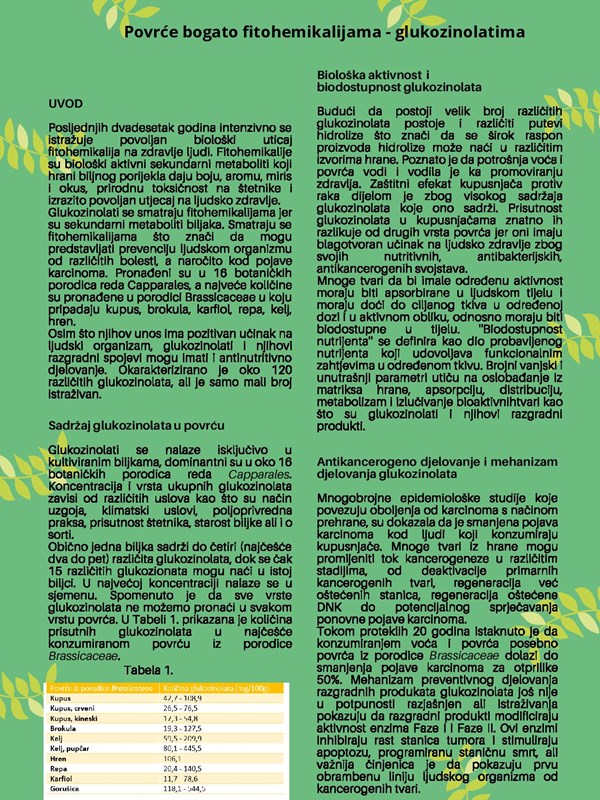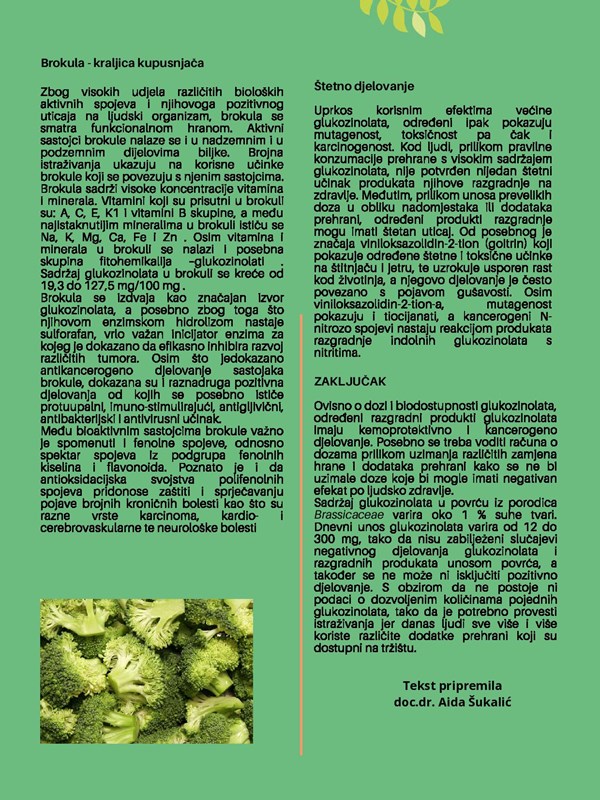Vegetables rich in phytochemicals - glucosinolates
In the last twenty years, the favorable biological impact of phytochemicals on human health has been intensively researched. Phytochemicals are biologically active secondary metabolites that give foods of plant origin their color, aroma, smell and taste, natural toxicity to pests and extremely beneficial effects on human health.
Glucosinolates are considered phytochemicals because they are secondary metabolites of plants. They are considered phytochemicals, which means that they can prevent the human body from various diseases, especially the appearance of cancer. They were found in 16 botanical families of the order Capparales, and the largest quantities were found in the family Brassicaceae, which includes cabbage, broccoli, cauliflower, beets, kale, horseradish.
In addition to their positive effect on the human body, glucosinolates and their degrading compounds can also have antinutritive effects. About 120 different glucosinolates were characterized, but only a small number were investigated.
You can find out more details about the content of glucosinolates in vegetables, the biological activity and bioavailability of glucosinolates, the anticancer action and the mechanism of action of glucosinolates at the link below.
Sjeverni logor bb, Mostar
eMail: af@unmo.ba
Tel/Fax: 036 571 388

